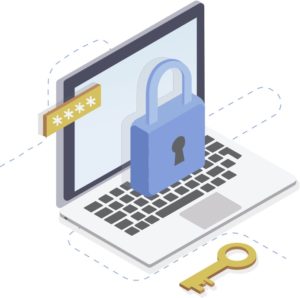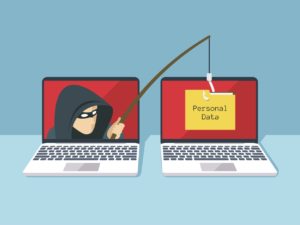 Keep Yourself Safe Online
Keep Yourself Safe Online
The World Wide Web was put into the public domain in 1993, less than 30 years ago. Now many of us use the internet daily, doing everything from our weekly shop to hunting down that LP with the limited edition cover you’ve coveted since you were 16.
But how do you keep your online information safe and minimise the risks?
Watch our Webinar with Suzanne Lluch or read the page below to learn our top tips.
Staying Safe Online - Webinar with Suzanne Lluch
Simple tips on how to stay safe online
Unique passwords
You’ll be aware that you seem to need to create an account and therefore password for every online transaction, which can be annoying. When asked to create a password it may seem a good idea to default to your old trusted one, like your pet from when you were 8, but that’s not the best solution. Strong and unique passwords help you stay safe online and ensure that a whole sweep of accounts cannot be accessed easily if your password gets into the wrong hands. You probably have sensitive personal information stored on surprisingly more accounts than you realise. This information can be used for identity theft.
How can I protect myself against identity theft?
Log out of services, like banking sessions or other accounts where you have sensitive information, when you are not using them.
This is particularly important if you use an internet cafe, a computer at your local library or other public place outside your own home. If you remain logged into an account, a cyber attacker can make your browser send requests to other accounts you are logged into and could, for instance, request a bank transfer.
What is sensitive data?
Under GDPR the definition is data consisting of:
- racial or ethnic origin,
- political opinions,
- religious or philosophical beliefs,
- trade union membership,
- genetic data,
- biometric data,
- data concerning health,
- data concerning a natural person’s sex life or sexual orientation.
What is non-sensitive data?
GDPR establishes a clear distinction between sensitive personal data and non-sensitive personal data.
Examples of non-sensitive data would include:
- gender,
- date of birth,
- place of birth,
- postcode.
Although this type of data isn’t sensitive, it can be combined with other forms of data to identify an individual.
Keeping your software up to date keeps you safe
You’ll be familiar with software updates if you have a smart phone. The software is written by humans and can contain mistakes. These flaws can compromise internet safety, so it makes sense to ensure your devices are up to date with the latest updates to keep them as secure as possible. Cyber criminals can scan the internet for users who are using older software versions and specifically target them because of the flaws. The best thing to do is to enable automatic updates to take place on your device.
Keep vigilant for phishing attacks
 Phishing is when a malicious link or an email attachment is sent to you by an attacker. Opening the link or attachment infects your device with malware or can enable your login credentials to be stolen.
Phishing is when a malicious link or an email attachment is sent to you by an attacker. Opening the link or attachment infects your device with malware or can enable your login credentials to be stolen.
The attacker may go to some lengths to make their email look as genuine as possible, using real logos, your name etc. But there are things you can look out for. Spelling mistakes, grammatical errors, the message creating a sense of emergency for the recipient to spring into action (by clicking the link!). You can check if the sender’s email is one that you recognise and not a ‘copycat’ account. But even if the email address seems genuine, if you have any doubts, call up the person or company that sent the message to check the email is genuine. It’s advisable to do an internet search for a company number as any number given in an email could be false. Phishing doesn’t only happen via email, you can receive phishing links via text message or in chats too.
Backup your important documents
Have backups of all your important documents, photos and videos.
Ransomware is a type of malware that encrypts the files on your device and demands a ransom fee for decryption. Having backups in case your device ever gets lost, stolen or is infected can give you peace of mind just in case.
